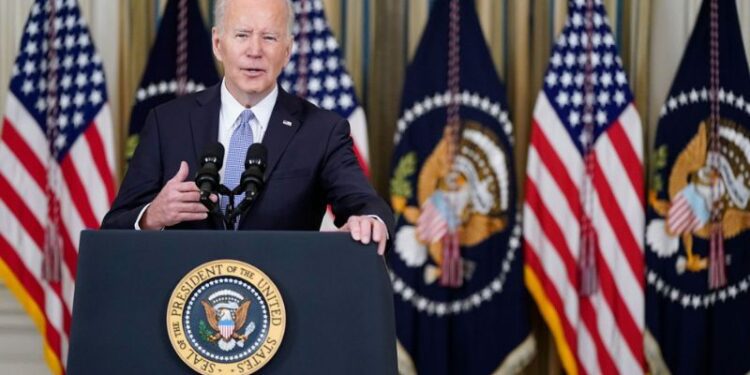President Joe Biden’s recent visit was marred by growing Arab-American dissatisfaction over his handling of the Israel-Palestine conflict. Pro-Palestinian protesters, accusing Biden of supporting a “genocide” in Gaza, made their voices heard near his meeting with the United Auto Workers union, a group that recently endorsed him.
Michigan, a state that played a crucial role in Biden’s narrow victory over Donald Trump in 2020, is witnessing heightened tensions as the Israeli military continues its operations in Gaza. The civilian death toll rises, prompting regular confrontations between the President and protesters demanding a ceasefire.
Biden’s visit commenced with a casual interaction with diners in a restaurant popular among African Americans, a demographic crucial for his reelection bid. However, the President faces the risk of losing support from the state’s sizable Muslim and Arab heritage community, potentially impacting the upcoming election decided by razor-thin margins.
Michigan, known as a swing state, holds strategic importance in the electoral map, and Biden’s narrow victory there in 2020 underscores its significance. Demonstrating the delicate balance, Biden’s campaign manager’s recent visit to Dearborn, home to the largest concentration of Arab Americans in the U.S., resulted in a snub from the local mayor.
In an attempt to preempt protesters, the White House kept Biden’s destination undisclosed, revealing only that it was in the Detroit area. Despite the visit, the President did not engage with representatives of the Arab-American community during his time in the state. However, the White House stated that senior administration officials would soon visit Michigan to address concerns.
Criticism stems from Biden’s request for additional military aid to Israel and his administration’s repeated vetoing of UN Security Council calls for a ceasefire, leaving many Muslims and people of Middle Eastern heritage feeling betrayed by the Democratic Party. The accusations include sacrificing civilians in Gaza to support Israel.
While White House spokesperson Karine Jean-Pierre emphasized Biden’s empathy for the suffering of innocent Palestinians, discontent within the Arab-American community persists. The President’s announcement of sanctions against four Israeli settlers accused of attacking Palestinians in the West Bank was seen as a response to the escalating tensions.
As the conflict in Gaza continues, fueled by events since Hamas’s October 7 attack, the situation remains complex. With Michigan’s Arab-American community expressing their discontent, Biden faces the challenge of navigating these intricate geopolitical sentiments while seeking support in a key battleground state.
















